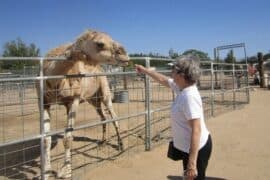Welcome to the Wonderful World of M?ori Names!
Hello to all the lovely moms and dads out there! Are you considering a M?ori name for your little treasure? You’ve landed in the perfect spot. Today, we’re diving into a pool of cultural richness to explore the unique and meaningful names of New Zealand’s indigenous M?ori culture. Choosing a name for your child is a delightful journey, and when it comes to M?ori names, it’s also a beautiful way to honor a vibrant heritage. So, let’s embark on this adventure together and find a name that resonates with the spirit and the heart!
The Significance of M?ori Names
M?ori names, known as ingoa M?ori, are more than just a label for identification. In M?ori culture, names carry deep significance. They can reflect history, identity, and the environment. An ingoa M?ori might tell a story, commemorate an ancestor, or capture a particular characteristic or hope that parents have for their child. It’s a powerful way to connect a child to their land, their whakapapa (genealogy), and their wh?nau (family).
Understanding the Language and Pronunciation
Before you venture into choosing a M?ori name, getting familiar with some basics of the language and its pronunciation is essential. The te reo M?ori (M?ori language) is beautifully phonetic, which means every letter is pronounced. Let’s ensure we pay respect to the language by learning how to say the names correctly:
- Vowel Sounds: The vowels a (as in “car”), e (as in “egg”), i (as in “bee”), o (as in “core”), and u (as in “soon”) are the building blocks of M?ori pronunciation.
- Consonant Sounds: Most consonants are pronounced similarly to English, with a few exceptions like ‘wh’ which is pronounced like an ‘f’, and ‘ng’ which is similar to the ‘ng’ in “singer”.
- Aroha: This beautiful name means “love” and is a gorgeous choice imbued with warmth and positivity.
- Tane: Paying homage to T?ne, the god of forests and birds, this name signifies a strong connection to nature.
- Kai: A name that means “food” or “meal” — vital for life, just like your little one.
- Hana: Reflecting the word “hana” which means to shine, glow, or give out radiance — just like your child’s bright future.
- Ira: Meaning “descendant,” it’s a name that beautifully connects your child to their ancestors.
- Connect with the Culture: If you’re not M?ori, it’s essential to connect with M?ori individuals or communities and understand the cultural significance and appropriateness of the name you’re considering.
- Consider the Meaning: Reflect on what you wish for your child’s future, their personality, and the values you’d like to impart. The meaning behind a name can be a powerful thing.
- Think About Pronunciation: Make sure the name can be easily pronounced by you and the people in your child’s life to avoid any unnecessary confusion or mispronunciation.
- Family and Ancestral Connections: Choose a name that honors your family’s history or ancestors, if this is important to you and fits with the customs of naming within M?ori culture.
Now that we’re warmed up with the sounds, let’s move on and start exploring some charming M?ori names and their meanings.
Popular M?ori Names and Their Meanings
Delving into M?ori names is like uncovering treasure — each name is unique and filled with significance. Take a peek at some popular options to get your inspiration flowing:
Remember, it isn’t just about the standalone name but also the combination of names that can create a harmonious and meaningful identity for your child. Often, M?ori names are paired or given in sequences to tell a story or convey a deeper message.
Tips for Choosing a M?ori Name
Now that we’re feeling inspired by some of the lovely names and their meanings, let’s consider a few tips that will help you choose the perfect M?ori name:
As we reach the end of this delightful introduction to M?ori names, remember, the name you choose will be a gift to your child that they will carry throughout their life. Make it meaningful, make it resonate, and above all, make it a token of love and respect for one of the world’s richest cultures.
Stay tuned as we continue our journey through the enchanting world of M?ori names, diving even deeper into more names, their meanings, and how to honor and celebrate M?ori culture through your child’s name. Happy naming, dear parents!

Five Essential Things Parents Should Know When Preparing for a New Zealand M?ori Name
Embarking on the journey of selecting a M?ori name for your child can be an enriching experience. It is a choice laden with cultural nuances, historical significance, and linguistic beauty. To assist you in making an informed decision, here are five important things every parent should know:
1. The Importance of Whakapapa (Genealogy)
For M?ori, whakapapa is at the heart of one’s identity, linking individuals to their ancestors and the natural world. When considering a M?ori name, understand that it’s an opportunity to weave your child’s identity into the larger tapestry of their heritage. Think about names that might celebrate or connect with your family’s lineage or that of a significant M?ori figure.
2. The Concept of Mana (Prestige, Authority, Control)
In M?ori culture, a name carries mana. It’s more than a simple moniker; it’s an embodiment of a person’s essence and standing. Seeking a name with positive connotations can bestow a sense of pride, strength, and a solid foundation upon which your child can build their identity and life.
3. The Tradition of Naming After Traits or Events
M?ori names are often chosen based on personal characteristics or significant events. This could be a reflection of the environment at the time of birth, an admired trait, or a hope for the child’s future. As you search for the perfect name, think about the story or ambitions you wish to encapsulate within it.
4. The Significance of Kaitiakitanga (Guardianship)
The M?ori principle of kaitiakitanga speaks to guardianship and protection of the environment, well-being, and cultural heritage. By choosing a M?ori name, you become a guardian of the culture. It is crucial to approach this role with respect and a willingness to learn and engage with the M?ori community and its traditions.
5. The Importance of Consultation and Respect
If you or your family are not M?ori, consultation and dialogue with members of the M?ori community can provide valuable insights into the appropriateness and usage of a particular name. Seeking guidance ensures that the name is not only beautiful but also given with the utmost respect for its origins and meaning.
By acknowledging these five aspects, you will approach the selection of a M?ori name with the reverence and understanding it deserves. Remember that a name can be a powerful foundation for your child’s life journey, so choose one with love, purpose, and a deep appreciation for the M?ori language and tradition.
The process of naming your child is a beautiful and poignant moment in life. May it be filled with joy, cultural appreciation, and a connection to the rich tapestry of M?ori heritage. And remember, every time you call your child by their M?ori name, you are upholding the mana of the language and contributing to its perpetuation. Kia kaha (stay strong), kia m?ia (be brave), kia manawanui (be big-hearted). Aroha nui (big love) to you and your growing wh?nau!
Continue onwards, dear parents, as the journey of choosing the right M?ori name is an adventure in itself. Explore further, learn deeply, and embrace the opportunity to make your child’s name a homage to New Zealand’s indigenous heart.
See more great Things to Do with Kids in New Zealand here. For more information see here
Disclaimer
The articles available via our website provide general information only and we strongly urge readers to exercise caution and conduct their own thorough research and fact-checking. The information presented should not be taken as absolute truth, and, to the maximum extent permitted by law, we will not be held liable for any inaccuracies or errors in the content. It is essential for individuals to independently verify and validate the information before making any decisions or taking any actions based on the articles.




